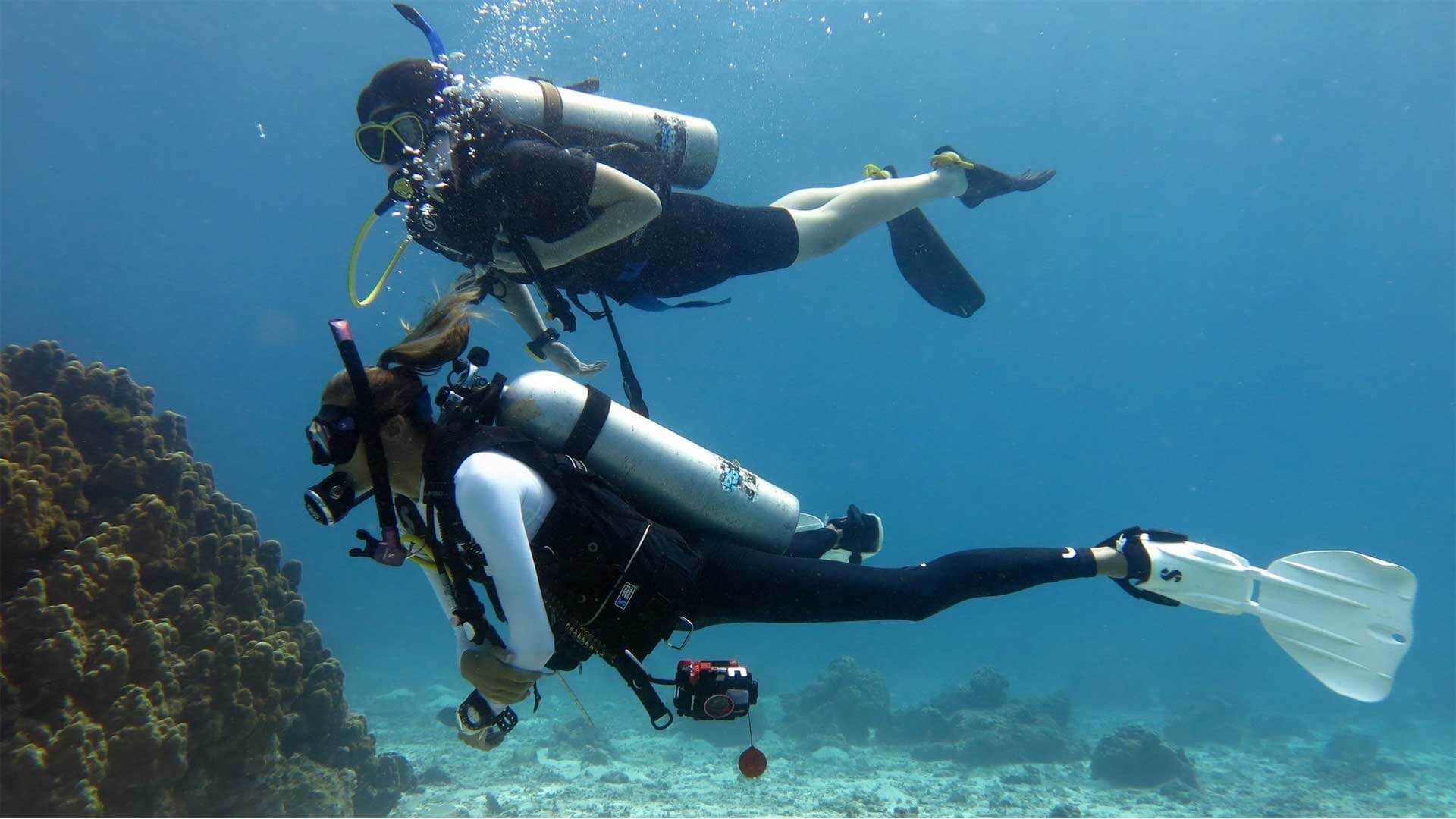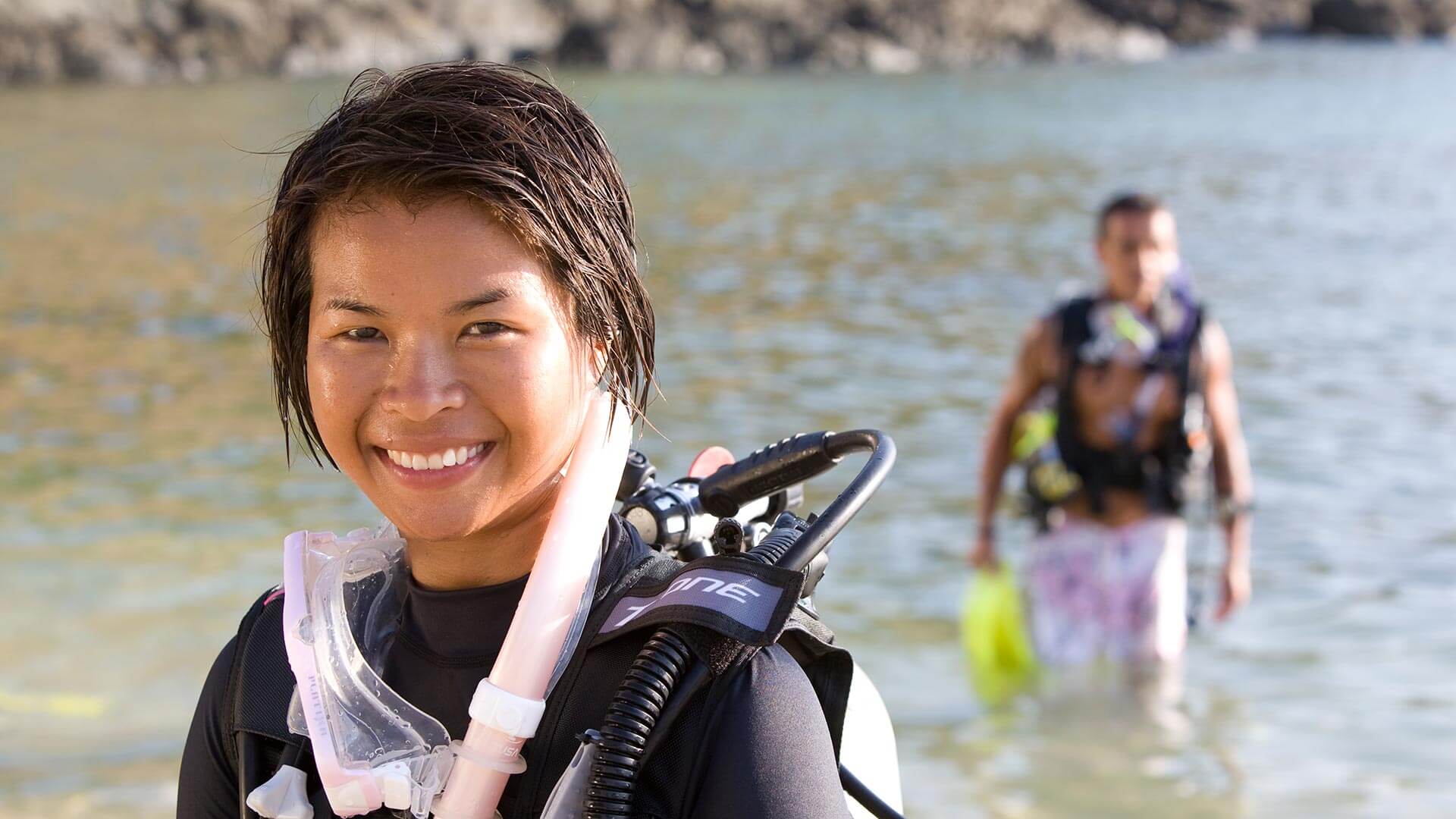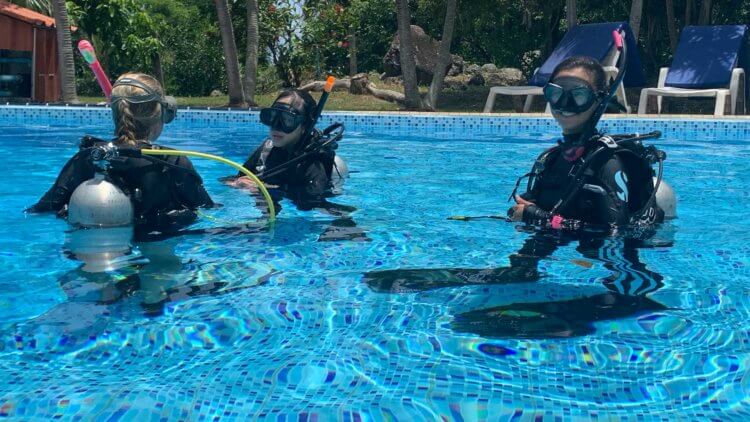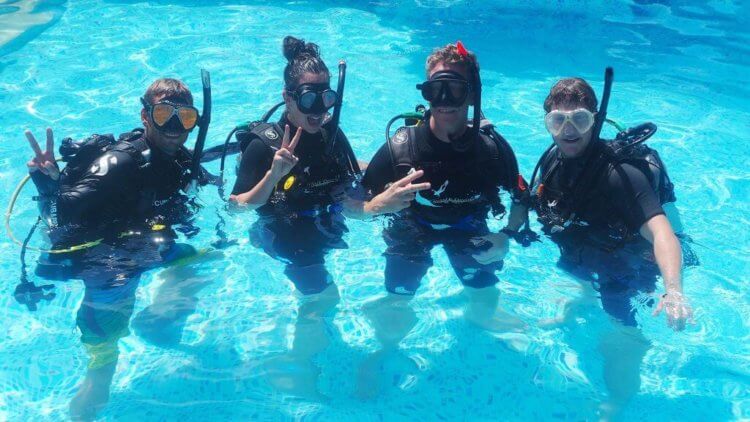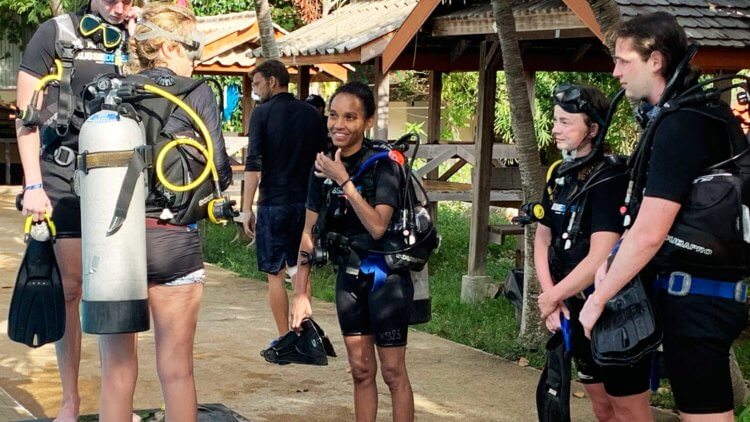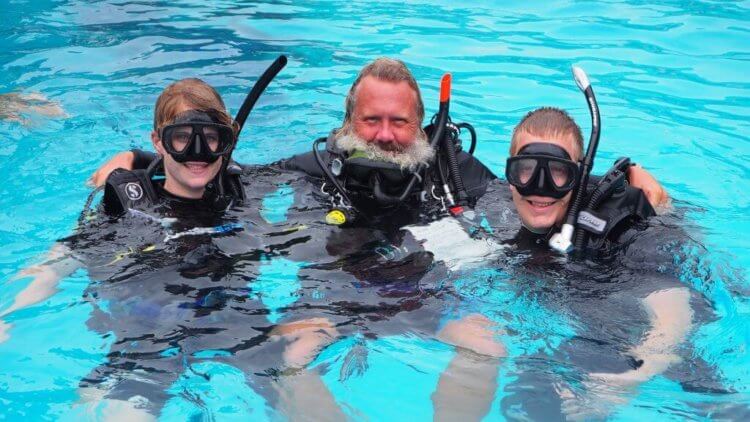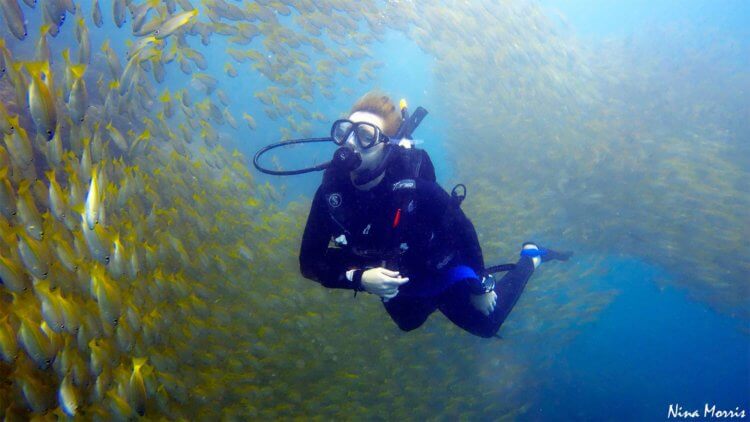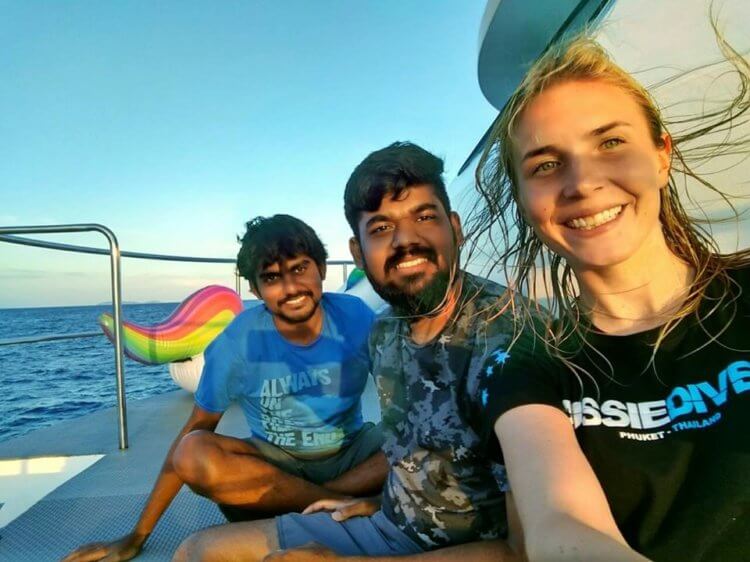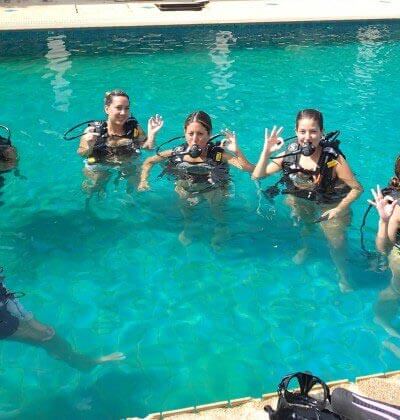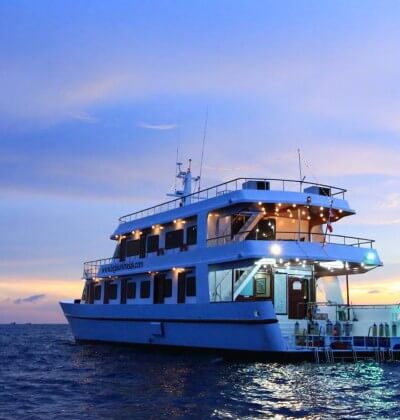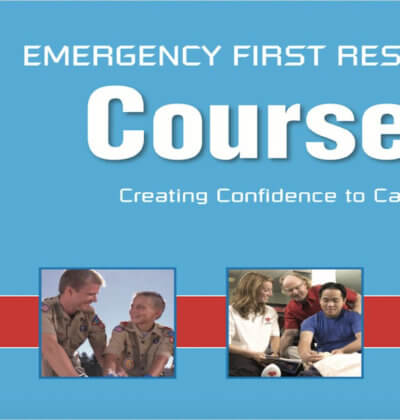Creating Divers Not Just Certifications
This blog is about learning how to scuba dive well and creating good good divers, not just doing what it takes just to get get a scuba diving certifications.
Learning to dive
Here we try and explain why it is important to do a professional basic scuba diving that creates scuba divers and not just ticking the boxes for a scuba diving certification.
Scuba diving is an eye opening and amazing activity. It is something that everyone should try at least once in their life. As with all things fun, it does come with inherent risks. Although the number injured or fatalities are very low. Divers need to be aware of rare but possible dangers each time they dive. These could be physiological issues such decompression sickness, baratraumas, ear issues. Or other concerns such boat traffic, marine life stings and bites, equipment failure or simply getting lost whilst underwater.
These issues are rare and with enough practice they are easily recognized and avoidable. The training should be done over a period or length of time that allows the diver to digest and master both the theoretical knowledge and the practical skills. These should advert, prevent or treat the possible dangers.
Preparing to be a safe diver
Your PADI Open Water course if your first opportunity to form safe diving habits. The more time you have to practice skills the better chance you are of forming good skills. Safe habits that will allow you to handle these situations.
Please take the time to consider when will the next time you will dive after your course. Often divers learn to dive on an annual holiday and it may be 12 months before they can dive again. Over that period, your knowledge and skills will most likely diminish. If the knowledge, skills and course were rushed in the first instant the it will be more difficult to recall and thus place the diver in possible danger. Now is the time to learn skills thoroughly.
How much time is needed?
The length of time needed will vary from person to person however of late. We have seen training times for scuba diving certification courses becoming less and less. Shorter travel times and rushed lifestyles have placed a demand on dive centres to do faster and faster courses.
This has seen course times drop to what some professional dive centres consider insufficient to create good divers. It appears the training provided is simply enough to tick the boxes and have a diver certified. Without the correct training a diver fails to learn good diving techniques and places them at a greater risk during their subsequent dives in the future.
It appears that beginner divers without an understanding of the importance of a good dive education are demanding shorter courses. Dive centres desperate to get business are complying. This enviably will end up with poorer diver education and abilities and in turn an increase of scuba diving accidents and fatalities.
Practice time verses safety
Her is an analogy. In some states of Australia it is required that you have 100 hours practice with a licensed motor driver. With you to get your motor driver’s license. As a result, Australia has one of the lowest road tolls in the world.
Thailand on the other hand has no requirement for practicing before getting a motor driver’s license. Believing that you can learn after having a license. As a result, they have one of highest road tolls in the world, about six times that of Australia.
Although not suggesting that every scuba diver should have 100 hours practice before going into open water, there is a correlation between hours practiced with a trained instructor/mentor and the number of accidents and fatalities.
Time involved in training
Training organizations, to which PADI is just one, all have similar training requirements. PADI for example has five theoretical chapters made up of a 60 minute DVD, 15 – 25 question knowledge review and a 10 question quick quiz. There are five of those and a final exam of 50 questions. To do this in its entirety as PADI intended it would take at a minimum 6.5 hours.
The confined water/pool session has 34 safety skills spread over five confined water sessions. As a minimum, the course has a minimum of four open water dives with a collected 25 safety skills to perform and master. Allowing just five minutes to do all skills (not including travel time of breaks) should take three hours. It is not uncommon for a pool session to take twice that time.
Virtually all of these skills are safety based. These skills are to prepare a diver in preventing possible problems or in the event that something unexpected does happen. Being able to handle these issues may be the difference between safe and enjoyable dive. A diver that places themselves at risk every time they dive. Rushing or skipping these skills could have tragic consequences in the future.
The confined water/pool is not only the safest place to perform skills it is the best place to nurture and develop good scuba diving habits. Mastering these skills that will be the foundation for a good and safe scuba diving life.
Importance of Mastering skills and Mastering knowledge
Mastering both theoretical knowledge and underwater skills are critical to a scuba diver. Mastering both not only helps keep you safe, by ensuring you can manage any underwater problems if they may arise.
Practicing skills
The more people practice a new skill they are learning, the denser the myelin in their brains becomes, which helps you learn even better.
Classroom theory verses eLearning verses self-study
Elearning is now available and can be a good way reduce classroom time. This can be useful if the if the eLearning is fully interactive with all videos and exams included and if the student is accustomed to learning online.
However, eLearning is not for everyone and there are a great number of people that would benefit from a classroom education. Older non-digital folk, children and those that their language is not offered in eLearning.
Classroom education is more beneficial to those that need information reworded to a language that they clearly understand. It also gives a greater opportunity to ask questions which gives a greater understanding of the topics. It also allows the instructor to observe the student truly understands the information
The student should be in consultation with their instructor or dive centre with regards to what method would be best for the individual.
Early development of correct motor skills
Most of the PADI confined water skills are emergency based skills and often they will never occur in a life time of diving. The confined water session may be the only time a student may have to practice the skill before they need to perform it in the unlikely event that accident actually occurs.
Free Flowing Regular, Equipment Removal, No mask swim and Emergency Weight Belt Drop are only performed in the pool. These skills should have enough time allocated so that the student can master and have the appropriate cognitive recall and ability if or when such an emergency may occur.
Actually learning how to dive
One of the most underrated skills is the actual act of scuba diving. Body positioning, kicking style, buoyancy control and good breathing habits are all very important tools that should be encouraged, taught and practiced during your first course. They are the foundation tools in being a good and safe diver.
For instance, one of the most important skills every diver to master is controlling buoyancy control. This is best done in open water and under the supervision of your instructor as a diver cannot watch themselves as they dive. Often divers are not aware if they are stirring up silt or sand from the sea bed. Having good buoyancy control will have you avoid damaging corals, marine life and have you staying away from the fragile sea floor.
Actually learning how to dive is one of the most important skills of scuba diving and is often lost in short rushed courses.
Different environments different locations, more experience
Diving different locations and different dive sites exposes the student divers to different underwater scenarios and conditions. Different dive sites exposes student divers topography, water movement such as underwater current, swell, possibly upwelling currents and thermoclines along with different marines creatures and coral, submerged aquatic vegetation and topography.
Diving in the same location for all four dives, all be it generally quickens the course, only provides limited experience and training for the student diver. Although this is unavoidable in some locations, if the opportunity is available diving different dive locations with an instructor does provide a much thorough dive education.
Relax while scuba diving – Air Consumption
There are a number of ways that a diver can improve their air consumption and one of the most important is the ability to be relaxed in the water. Being relaxed with slow you breathing and conserve air.
Good buoyancy control and correct fin kicking techniques will also help. Both of these are improved the longer you get to spend with your instructor.
And why is air consumption so important? Your air consumption determines the amount of time you will get to dive. You will simply get more time under the water and better value for money.
Conclusion
Your open water course is probably the most important course you will do in your time as a scuba diver.
The habits knowledge, habits and techniques you will learn will be the foundation to making a good and safe diver.
Take the course seriously and become a safe and respectful diver. Find a good and reputable dive centre and most importantly take the time to learn all that is required. Become a diver that is prepared and capable of handling a range of diving situations. It may just save your life one day.
Contact Aussie Divers Phuket for all your Scuba Diving needs
Posted in Courses on .

